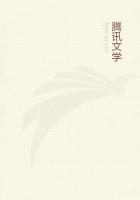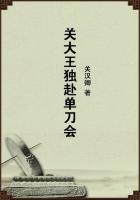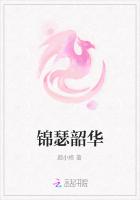Leaving these general pictures he considered the people whom he had been observing lately at the hotel. He had often revolved these questions in his mind, as he watched Susan and Arthur, or Mr. and Mrs. Thornbury, or Mr. and Mrs. Elliot. He had observed how the shy happiness and surprise of the engaged couple had gradually been replaced by a comfortable, tolerant state of mind, as if they had already done with the adventure of intimacy and were taking up their parts. Susan used to pursue Arthur about with a sweater, because he had one day let slip that a brother of his had died of pneumonia. The sight amused him, but was not pleasant if you substituted Terence and Rachel for Arthur and Susan; and Arthur was far less eager to get you in a corner and talk about flying and the mechanics of aeroplanes. They would settle down. He then looked at the couples who had been married for several years. It was true that Mrs. Thornbury had a husband, and that for the most part she was wonderfully successful in bringing him into the conversation, but one could not imagine what they said to each other when they were alone. There was the same difficulty with regard to the Elliots, except that they probably bickered openly in private. They sometimes bickered in public, though these disagreements were painfully covered over by little insincerities on the part of the wife, who was afraid of public opinion, because she was much stupider than her husband, and had to make efforts to keep hold of him.
There could be no doubt, he decided, that it would have been far better for the world if these couples had separated. Even the Ambroses, whom he admired and respected profoundly--in spite of all the love between them, was not their marriage too a compromise?
She gave way to him; she spoilt him; she arranged things for him; she who was all truth to others was not true to her husband, was not true to her friends if they came in conflict with her husband.
It was a strange and piteous flaw in her nature. Perhaps Rachel had been right, then, when she said that night in the garden, "We bring out what's worst in each other--we should live separate."
No Rachel had been utterly wrong! Every argument seemed to be against undertaking the burden of marriage until he came to Rachel's argument, which was manifestly absurd. From having been the pursued, he turned and became the pursuer. Allowing the case against marriage to lapse, he began to consider the peculiarities of character which had led to her saying that. Had she meant it? Surely one ought to know the character of the person with whom one might spend all one's life; being a novelist, let him try to discover what sort of person she was.
When he was with her he could not analyse her qualities, because he seemed to know them instinctively, but when he was away from her it sometimes seemed to him that he did not know her at all. She was young, but she was also old; she had little self-confidence, and yet she was a good judge of people. She was happy; but what made her happy?
If they were alone and the excitement had worn off, and they had to deal with the ordinary facts of the day, what would happen?
Casting his eye upon his own character, two things appeared to him: that he was very unpunctual, and that he disliked answering notes.
As far as he knew Rachel was inclined to be punctual, but he could not remember that he had ever seen her with a pen in her hand.
Let him next imagine a dinner-party, say at the Crooms, and Wilson, who had taken her down, talking about the state of the Liberal party.
She would say--of course she was absolutely ignorant of politics.
Nevertheless she was intelligent certainly, and honest too.
Her temper was uncertain--that he had noticed--and she was not domestic, and she was not easy, and she was not quiet, or beautiful, except in some dresses in some lights. But the great gift she had was that she understood what was said to her; there had never been any one like her for talking to. You could say anything-- you could say everything, and yet she was never servile. Here he pulled himself up, for it seemed to him suddenly that he knew less about her than about any one. All these thoughts had occurred to him many times already; often had he tried to argue and reason; and again he had reached the old state of doubt. He did not know her, and he did not know what she felt, or whether they could live together, or whether he wanted to marry her, and yet he was in love with her.
Supposing he went to her and said (he slackened his pace and began to speak aloud, as if he were speaking to Rachel):
"I worship you, but I loathe marriage, I hate its smugness, its safety, its compromise, and the thought of you interfering in my work, hindering me; what would you answer?"
He stopped, leant against the trunk of a tree, and gazed without seeing them at some stones scattered on the bank of the dry river-bed. He saw Rachel's face distinctly, the grey eyes, the hair, the mouth; the face that could look so many things--plain, vacant, almost insignificant, or wild, passionate, almost beautiful, yet in his eyes was always the same because of the extraordinary ******* with which she looked at him, and spoke as she felt.
What would she answer? What did she feel? Did she love him, or did she feel nothing at all for him or for any other man, being, as she had said that afternoon, free, like the wind or the sea?
"Oh, you're free!" he exclaimed, in exultation at the thought of her, "and I'd keep you free. We'd be free together.
We'd share everything together. No happiness would be like ours.
No lives would compare with ours." He opened his arms wide as if to hold her and the world in one embrace.
No longer able to consider marriage, or to weigh coolly what her nature was, or how it would be if they lived together, he dropped to the ground and sat absorbed in the thought of her, and soon tormented by the desire to be in her presence again.















